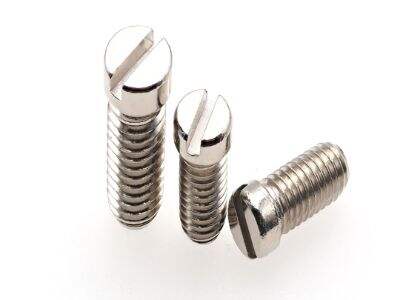Even tho small in size, brass nuts are extremely relevant pieces of hardware that deliver a lot of strength and durability. Although their chromsomatically stoic nature may suggest otherwise, brass nuts possess some fundamental characteristics that make them something special in the regard of usage in various machines and edifices. This piece will explain the wonderful characteristics of brass nuts and how they can often be superior in some scenarios compared to other materials.
Understanding the Advantages of Brass Nuts
Brass nuts may seem like mere chunks of metal, but they are essential to keeping things together tightly. Brass nuts are an important part of keeping everything secure and in place, whether we're dealing with a bike, a couch, or an advanced apparatus. Brass, has a unique combination of copper and zinc that make it excellent at resisting rust and corrosion. Brass nuts are perfect for outside applications as they are resistant to moisture, rain, and wet condition due to this property.
The Durability of Brass Nuts
One of the most well known characteristics of brass nuts is their incredible durability. Other types of material can rust over time or become weak, but brass nuts are one of the materials that can be around for some time without losing its strength. In situations such as extreme heat, cold and other factors, the nuts' endurance is beneficial. Brass nuts are constructed to retain their toughness and durability even in harsh conditions. They are therefore reliable for when things may get tough, making them a good investment for many uses.
Brass Nuts vs. Other Types of Materials: Why It's Better
Brass— this is the ultimate material for nuts, thanks to its unique properties. Brass nuts are identified by their tensile strength as well as ductile strength, together with exceptional conductivity. That makes them ideal for electrical applications where you need to have good flow of electric current. The ductile nature of brass also means that brass nuts are easy to machine and install, making them a popular choice for manufacturers and engineers looking to work quickly and efficiently. These characteristics make brass nuts a preferred choice across a multitude of industries.
What Brass Nuts Are Made Of
Gold brass inserts nut are actually made from a blend of copper and zinc, lending the nuts their characteristic "gold" color that most of us are familiar with. Brass nuts get their impressive properties, such as their corrosion resistance, their high tensile strength and their good thermal conductivity from this alloy or mixture. Moreover, brass nuts are not magnetic. This is an important feature in applications where magnetic interference could be an issue, like in some electronics.
The Potential of Brass Nuts
More Hidden Strengths of Brass Nuts Now let us delve deeper. They are a corner-stone that will improve your nuts and bolts in many ways. Brass nuts: the unsung heroes of mechanical components, and by understanding their properties, we can demand their better performance in countless industries. By interpreting this, we are able to be more conscious in our choices within manufacturing and engineering, creating successful projects.
Conclusion
To sum up, even if hardware nuts and bolts are little in the word of machines and structures, they do have special qualities that make them extremely important. Brass nuts are often superior to other materials in a number of cases, from their long-lasting strength to their excellent conductivity and simple usage. Utilizing the special characteristics of brass nuts will help improve our machines as well as make them serve us longer. Brass nuts might seem like small, unassuming pieces of hardware, but they have a hidden strength that we often overlook.












































